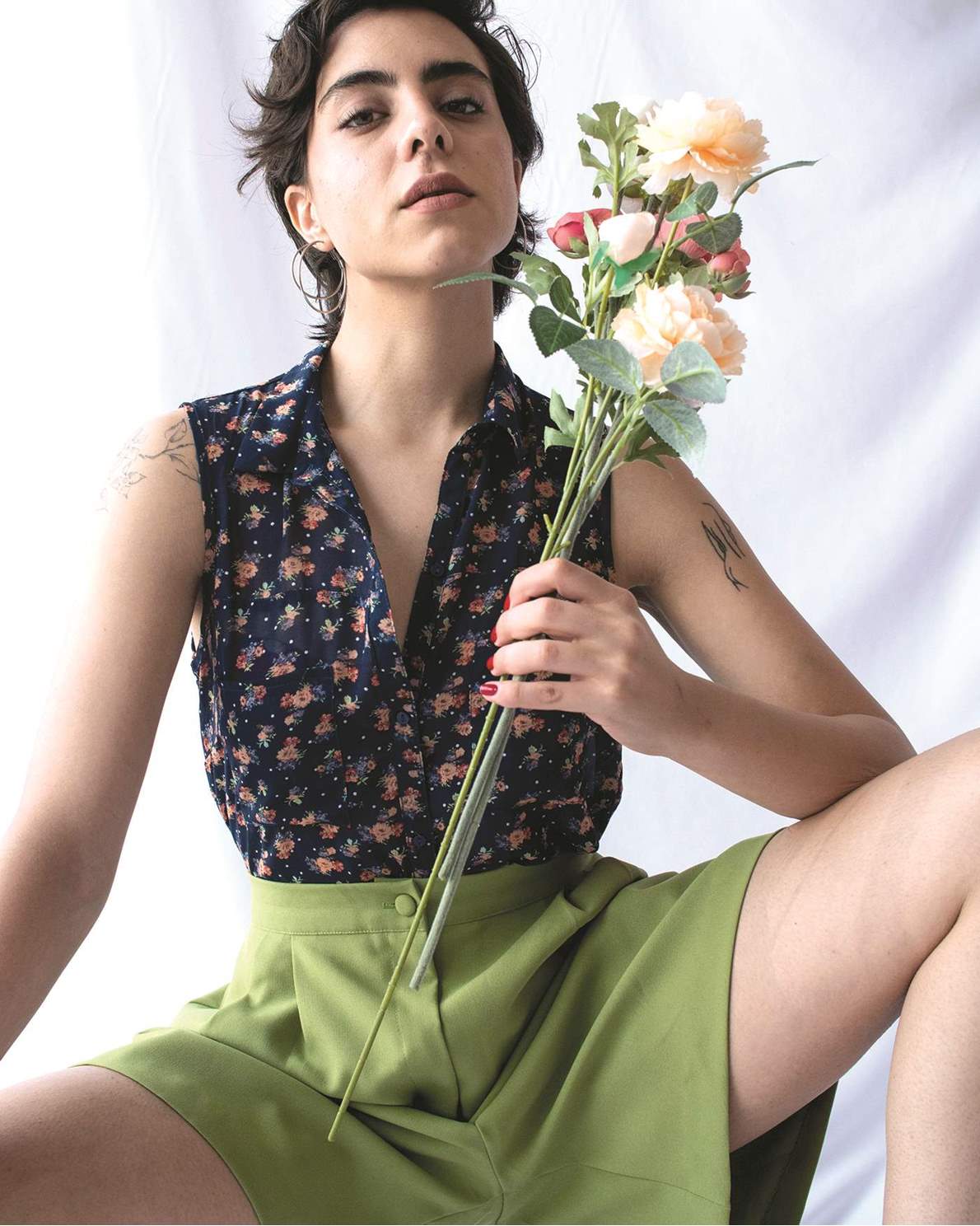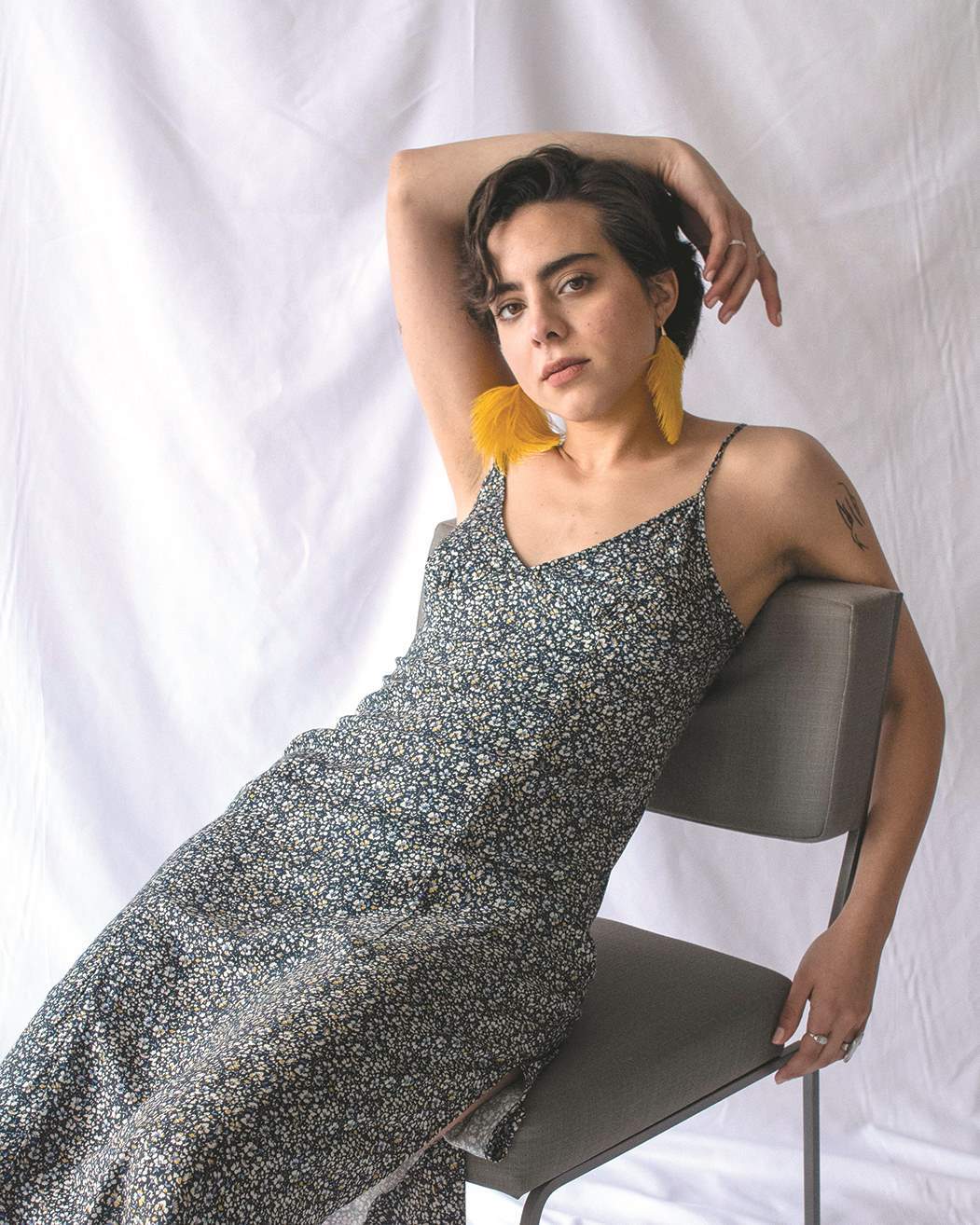AMMAN — A woman
walks into the room and all eyes are on her. Her outfit is unique, with a
vintage silhouette but a modern feel.
This is the kind
of girl Sura Al-Zubi, the founder of Iris Thrift Shop, picks clothing for.
اضافة اعلان
 Models show off second-hand items thrifted by Sura Al-Zubi and resold on her Instagram-based “Iris Thrift Shop”. (Photos: ReemaShatat)
Models show off second-hand items thrifted by Sura Al-Zubi and resold on her Instagram-based “Iris Thrift Shop”. (Photos: ReemaShatat)
Zubi is one of
several young Jordanians remolding the fashion industry through Instagram-based
thrift stores. On Zubi’s page, iris.thriftshop on Instagram, she posts
glamorous photos of the romantic, feminine items she sells: rustic embroidered
white dresses, pastel miniskirts, and unique antiques like a glass decanter
with a Russian doll handle.
Rather than
strolling through department stores in search of the perfect garment, making an
order is as simple as sending a direct message, and within a few days, the item
in question would arrive.
Zubi launched the
online shop in the midst of record-high unemployment rates in the Kingdom
following the pandemic.
The business is a
natural outgrowth of Zubi’s academic studies and personal interests; she is
currently studying for a master’s degree in environmental design in Russia.
“Ever since I was a teenager, people complimented my taste in clothes,” she
said in an interview with
Jordan News. “They were shocked sometimes because I
buy some of my clothes thrifted.”
 Models show off second-hand items thrifted by Sura Al-Zubi and resold on her Instagram-based “Iris Thrift Shop”. (Photos: ReemaShatat)
Models show off second-hand items thrifted by Sura Al-Zubi and resold on her Instagram-based “Iris Thrift Shop”. (Photos: ReemaShatat)
“When you look at
the environment, it’s crazy how we spend money and energy and resources on
making clothes, and we keep producing clothes even though we have them and we
can reuse them in a nice way,” she said. Her concerns about the environment and
her natural knack for picking out thrifted clothes were the perfect combination
for the shop.
The name of the
shop is based on Jordan’s national flower, the black iris. Each order arrives
in a bag stamped with the iris logo, and includes a card made on recycled paper
— small emblems of the intense care Zubi puts into each aspect of her business.
Each item is also carefully washed before it is sent to its new home.
To collect stock
for her Instagram page, Zubi spends hours scouting used-clothing shops in
Amman, Irbid, and Salt. “Every time I see a place, I go there,” she said. “Even
if I find one piece — if it's unique, it's good.”
Rather than
prioritizing brand names, she hunts for unique, flattering, and feminine
pieces. “Every piece I choose has a character,” she said. She imagines herself
wearing each piece, and sometimes makes small adjustments to the fit and style.
“My style is
about simplicity and being comfortable, and embracing your body,” she said.
For Zubi, branding
and styling are almost as important as the clothes themselves. She spent a
month developing the shop’s logo and branding. “I wanted it to stand out,” she
said. She collaborated with creative friends for modelling and photography, like
photographer Reema Shatat.
“People like
unique pieces that they can’t find in the stores,” she said. She recalled one
customer who bought the whole outfit she posted, a testament to her styling
skills.
The process has
involved trial and error. Zubi had never worked in fashion before — “I had only
styled myself” — nor had she ever operated her own business. “It was hard, but it
was fun” launching the shop.
With over a
thousand followers on Instagram, the store has been a success so far for its
founder. “I actually cried” when the store launched, she said, moved by the
positive attention she received.
Reusing and recycling across the globe
The movement to
make thrifted clothing cool again is not unique to Jordan. While thrift stores
may have once been stigmatized, they have become popular in many parts of the
world for providing unique items at affordable prices and reducing shoppers’
environmental footprint. The fashion industry is responsible for 10 percent of
the
world’s carbon emissions and is the second-largest consumer of the world’s
water supply, according to Business Insider.
Online apps and
stores have made the thrifting process even more convenient by cutting out some
of the time shoppers may spend combing racks for the perfect vintage dress. On
mobile apps like Poshmark and Depop, for instance, users can sell items from
their own closets, turning every fashionista with an overflowing closet into a
bedroom salesperson.
In June, online
sales app bought Depop for $1.6 billion, one indication of the growing pull of
clothing resale. More than 90 percent of the app’s 30 million users are under
the age of 26, which also suggests that the social-justice-oriented youth are
leading the way and making more deliberate choices about how they buy their
clothes.
Jordanians, many
of them young and entrepreneurial like Zubi, have jumped onto the trend as
well. Just searching the word “thrift” on Instagram now brings up dozens of
Jordanian shops, with names like “Amman Thrift” or “Thrifted Closet Jo.”
Zubi views Iris
as “not only a thrift store,” and hopes to expand the shop into the future,
hosting pop-ups and other events. One potential area for growth is men’s
fashion: she’s received many comments from men asking her to stock styles for
them.
She dreams of collaborations with fashion designers, and hopes that one
day the store can be her only source of income.
Not all
Jordanians are open to hearing messages about environment-friendly shopping,
according to Zubi. However, “some people love this idea,” especially, when second-hand
clothes are presented in the glamorous, romantic setting Zubi puts them into in
her photoshoots.
“That’s actually my message. You can wear used
clothes, and you can help the environment.”
Read more Lifestyle



